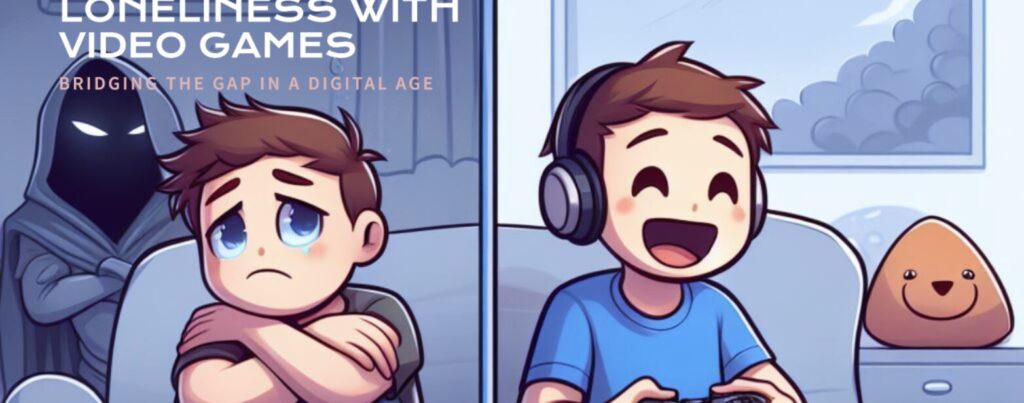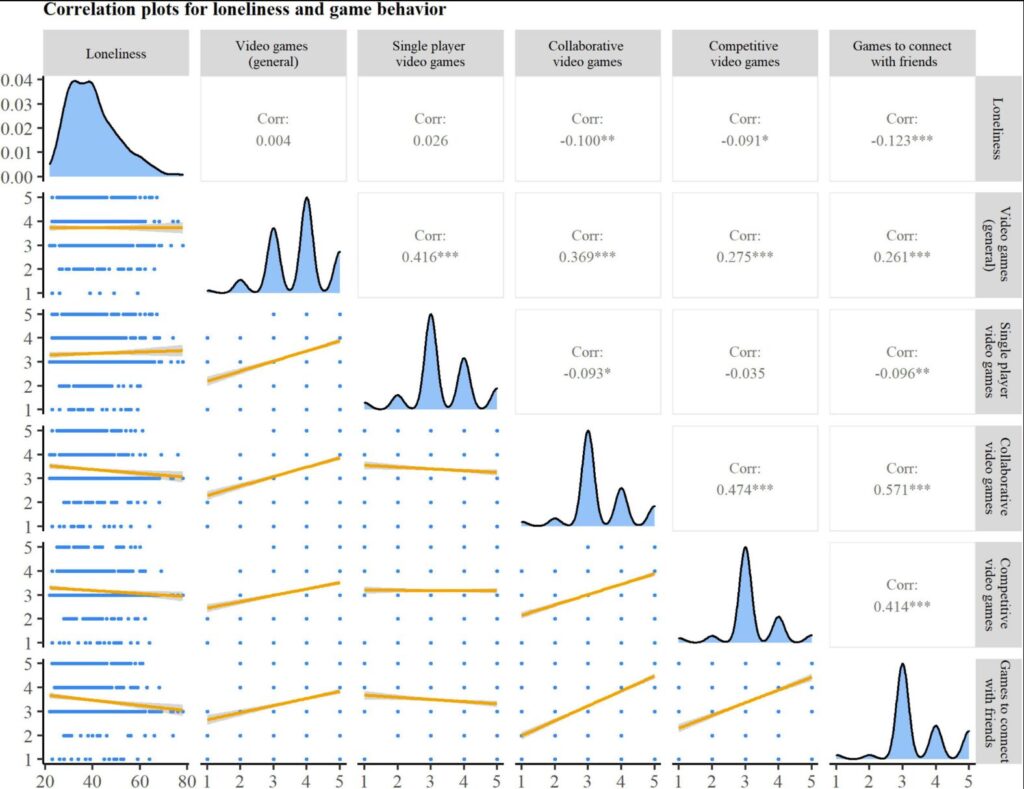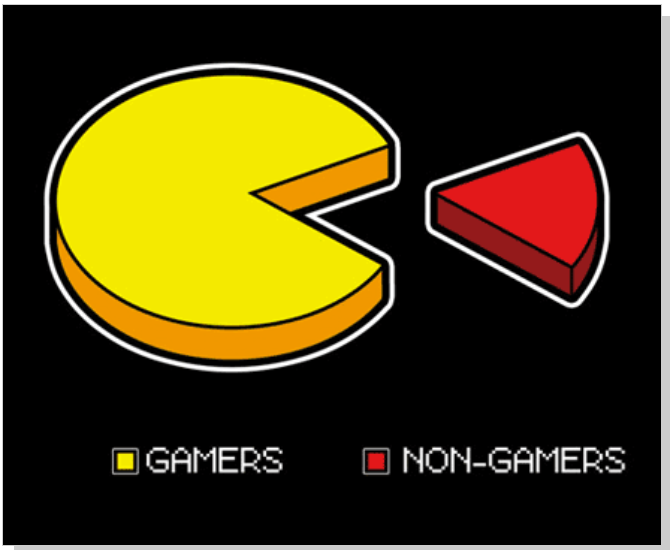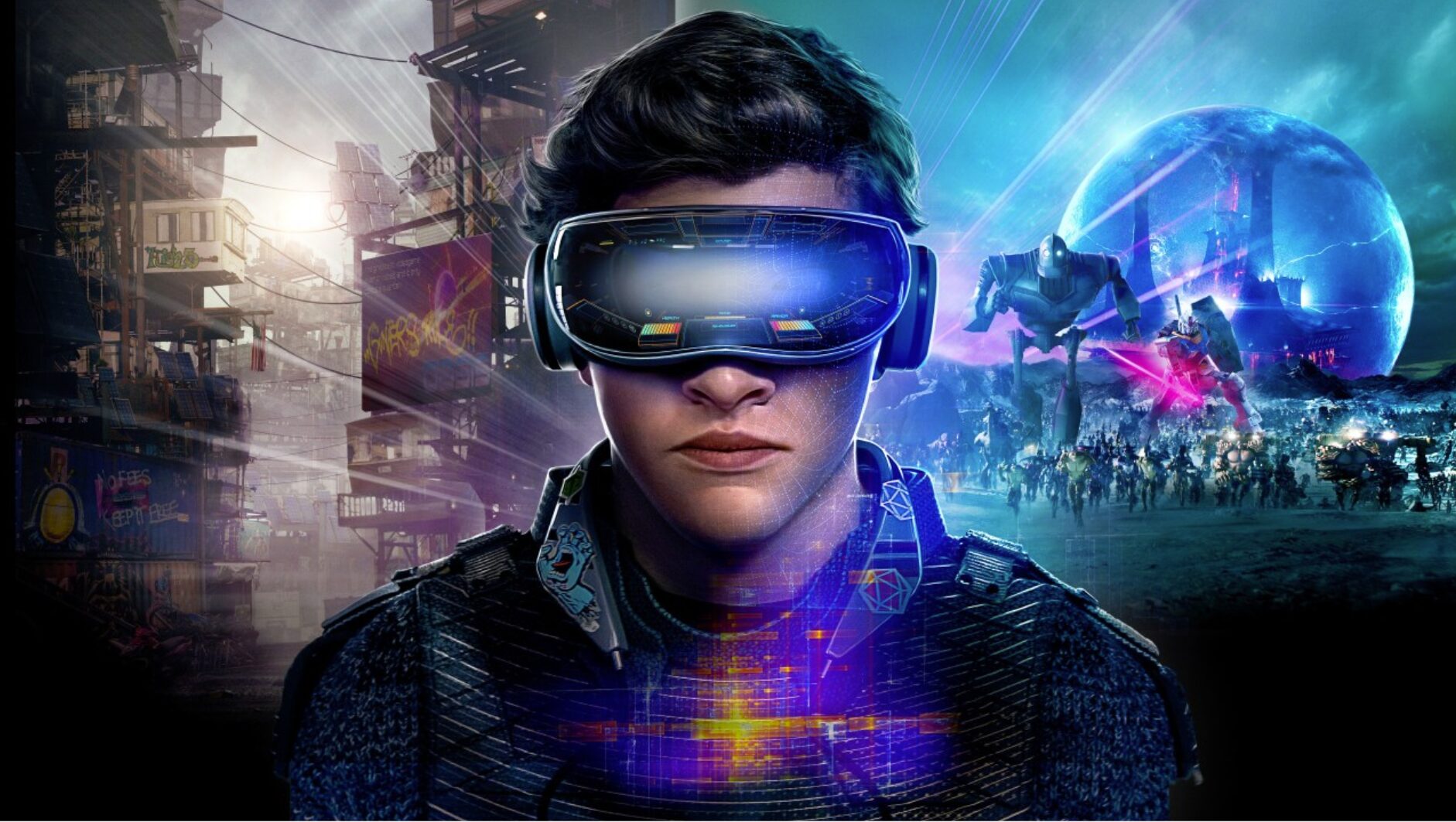
Chapter 3: Seclusion and Exclusion – How Video Games Isolate Players
In an era where digital connectivity is easier than ever, video games have become a popular way for people to interact. Multiplayer games like Fortnite, Call of Duty, and League of Legends are often marketed as social experiences, bringing together friends and strangers from across the globe. Yet, despite their potential for connection, video games can also foster feelings of isolation and exclusion.
Part of the issue lies in the nature of online interactions. While players may communicate via voice chat or messaging systems, these exchanges lack the depth and nuance of face-to-face conversations. Dr. Douglas Gentile, a developmental psychologist at Iowa State University, notes that the quality of social interaction in video games is often superficial. “When you’re playing a game, the focus is on the gameplay, not the conversation. You’re not having meaningful, emotionally deep exchanges—you’re strategizing or competing,” Gentile explains.
The superficiality of online communication can leave players feeling isolated, even when they are technically “connected” to others. This phenomenon is compounded by the fact that many online gaming communities can be exclusionary. Players who do not meet certain skill levels or who don’t conform to the norms of the group are often ostracized or ridiculed. The anonymity of the internet enables toxic behavior, including cyberbullying and harassment, which can further alienate players.
For young people, the consequences of exclusion in online spaces can be profound. Research from the Cyberbullying Research Center indicates that adolescents who experience online harassment are more likely to suffer from depression, anxiety, and social withdrawal. In extreme cases, online bullying has been linked to tragic outcomes, including suicide.
Additionally, the immersive nature of video games can lead players to withdraw from real-world relationships. A study published in the Journal of Youth and Adolescence found that teenagers who spent excessive amounts of time gaming were more likely to report feelings of loneliness and social isolation. The researchers concluded that gaming, while initially enjoyable, can become a substitute for real-world socialization, leading to a decline in face-to-face interactions over time.
Dr. Sherry Turkle, an MIT professor who studies technology’s impact on relationships, has written extensively about the ways in which digital communication—including gaming—can create emotional distance between people. In her book Alone Together, Turkle argues that while technology allows us to be constantly connected, it also enables us to avoid the messy, complicated aspects of real-life relationships. “We’re creating relationships with machines that give us the illusion of companionship without the demands of friendship,” Turkle writes.
This phenomenon is particularly evident in the rise of “binge gaming.” In recent years, gaming marathons—where players spend hours or even days playing without breaks—have become increasingly common. These prolonged gaming sessions not only contribute to physical health issues, such as obesity and sleep deprivation, but also exacerbate feelings of isolation. Gamers who binge on games may neglect social obligations, leading to strained relationships with family and friends.
Despite these concerns, many gamers argue that video games provide a sense of belonging and community. For individuals who struggle with social anxiety or feel alienated in their everyday lives, online gaming communities can offer a refuge. However, as Dr. Sarah Murnen, a sociology professor at Kenyon College, notes, the relationships formed in these virtual spaces often lack the emotional depth and stability of real-world friendships. “Online, it’s easier to present a curated version of oneself. But those connections are often more fragile, and when the game ends, the sense of belonging often evaporates,” Murnen explains.
Chapter 4: The Decline of Social Interaction – Gaming’s Role in a Fragmented Society
For decades, play has been a vital component of social development, especially for children. Team sports, group activities, and unstructured outdoor play have traditionally provided opportunities for collaboration, problem-solving, and the development of social skills. However, the rise of video games has fundamentally altered how young people interact with one another.

A 2019 study conducted by the Pew Research Center found that teenagers today are spending less time with their friends in person compared to previous generations. Instead of meeting at the mall or hanging out after school, teens are more likely to interact with their peers through screens—whether via social media or online video games. While these digital interactions can provide some social engagement, they lack the richness and complexity of face-to-face communication.
Dr. Jean Twenge, a psychology professor at San Diego State University, has written extensively about the impact of technology on socialization in her book iGen. Twenge argues that the decline in real-world social interaction is contributing to a mental health crisis among young people. “Kids today are more connected than ever, but they’re also lonelier and more isolated. The more time they spend on screens, the less time they spend developing the social skills they need to navigate the real world,” Twenge explains.
Video games, in particular, may exacerbate this trend. Unlike social media, which still requires some level of conversation or interaction, video games allow players to engage in solitary experiences for hours on end. Even multiplayer games, which theoretically offer opportunities for socialization, often prioritize competition over collaboration.
In a study published in Computers in Human Behavior, researchers found that individuals who spent more time playing video games reported lower levels of social competence and higher levels of loneliness. The study’s authors concluded that while gaming can provide short-term enjoyment, it often comes at the expense of long-term social fulfillment.
Moreover, the solitary nature of video games can foster unhealthy behaviors. Players who become deeply engrossed in gaming may neglect other aspects of their lives, including school, work, and personal relationships. This can lead to a vicious cycle of isolation, where individuals retreat further into the virtual world as their real-world connections deteriorate.
Dr. Turkle, in her research on digital communication, emphasizes that real-world socialization is crucial for emotional and cognitive development. “When we communicate face-to-face, we engage in a complex exchange of verbal and non-verbal cues. We read body language, interpret tone, and develop empathy. These skills are essential for forming meaningful relationships,” Turkle notes. “When we replace these interactions with digital communication, we lose the opportunity to develop those skills.”
Chapter 5: Video Games as a Form of Exclusion – The Growing Divide
As video games become more entrenched in modern culture, they also risk creating a growing divide between those who participate in gaming and those who do not. In households where one or more family members are avid gamers, there can be a noticeable disconnect between gamers and non-gamers, often leading to feelings of exclusion.

For many parents, video games represent a source of frustration and concern. They worry that their children are spending too much time in front of screens and not enough time engaging with the family. This divide can lead to tension within the household, as parents struggle to limit screen time and encourage more real-world interaction.
Additionally, non-gamers may feel left out of social circles where gaming is a primary form of communication and bonding. In schools, for instance, students who don’t play popular games like Minecraft or Fortnite may feel alienated from their peers. This exclusion can extend into adulthood, where non-gamers may struggle to connect with colleagues or friends who bond over shared gaming experiences.
In relationships, the divide between gamers and non-gamers can create strain. A 2020 survey conducted by the online relationship platform Time to Mingle found that nearly 50% of respondents reported conflicts with their partners over gaming habits. In many cases, one partner felt neglected as the other spent hours immersed in video games.
Experts caution that while gaming itself is not inherently harmful, it can become problematic when it interferes with real-world relationships. Dr. Murnen notes that the key to maintaining healthy relationships is balance. “Gaming can be a great way to unwind and connect with others, but it shouldn’t come at the expense of real-world interactions. It’s important for individuals to strike a balance between their online and offline lives,” she advises.
Conclusion: The Future of Gaming – Balancing Fun and Responsibility
As video games continue to evolve, so too must our understanding of their impact on mental health, brain function, and socialization. While video games offer numerous benefits—such as entertainment, creativity, and even social connection—the potential harms cannot be overlooked.
Parents, educators, and policymakers must work together to ensure that gaming remains a healthy, balanced activity. This could involve setting limits on screen time, encouraging more face-to-face interaction, and promoting games that foster collaboration and empathy rather than competition and violence.
For individuals, the key is moderation. Video games can provide a fun escape, but they should not replace real-world relationships or experiences. By striking a balance between virtual and real-life interactions, players can enjoy the best of both worlds without sacrificing their mental and social well-being.
In the end, the goal should be to create a gaming culture that enhances, rather than diminishes, our ability to connect, learn, and grow in the real world.








